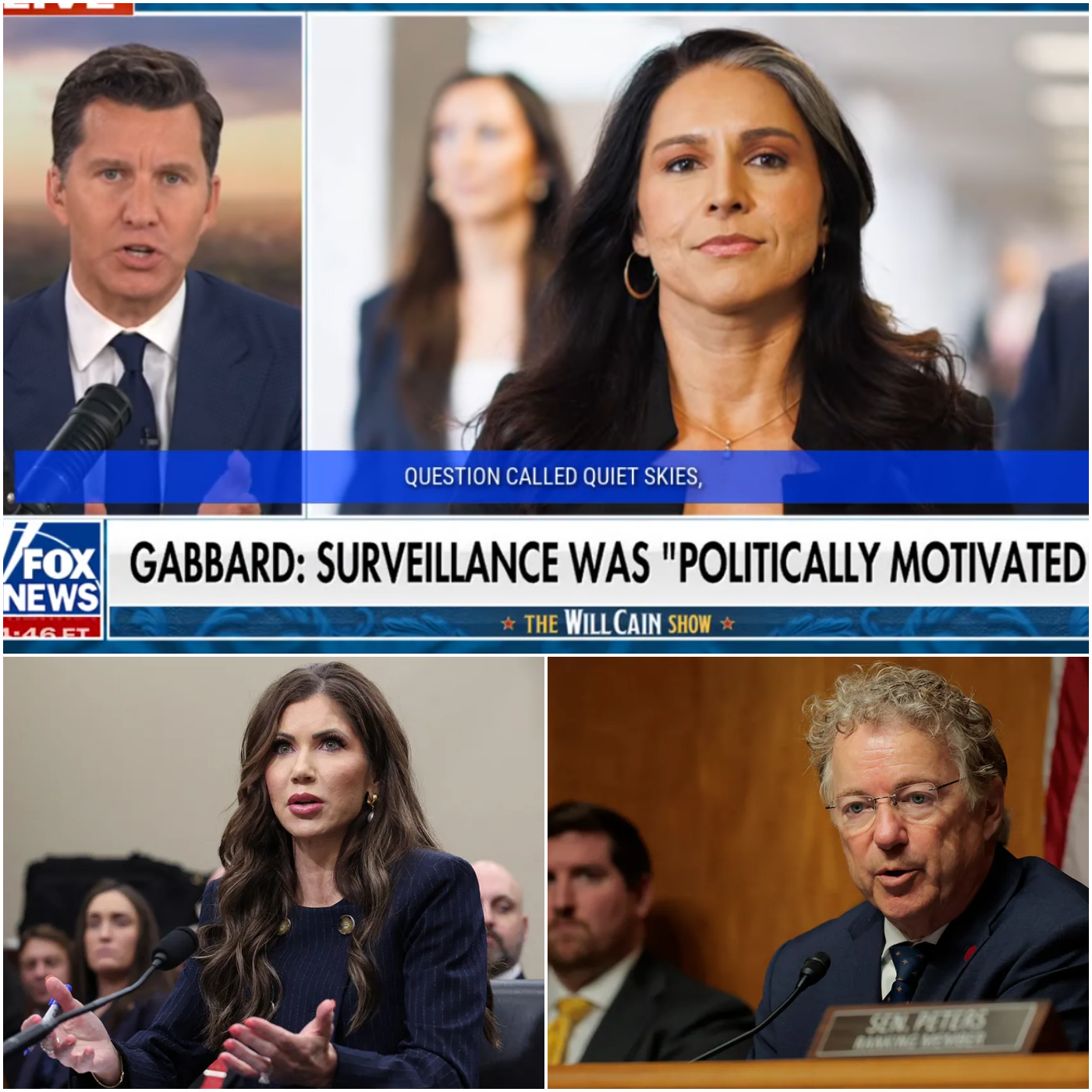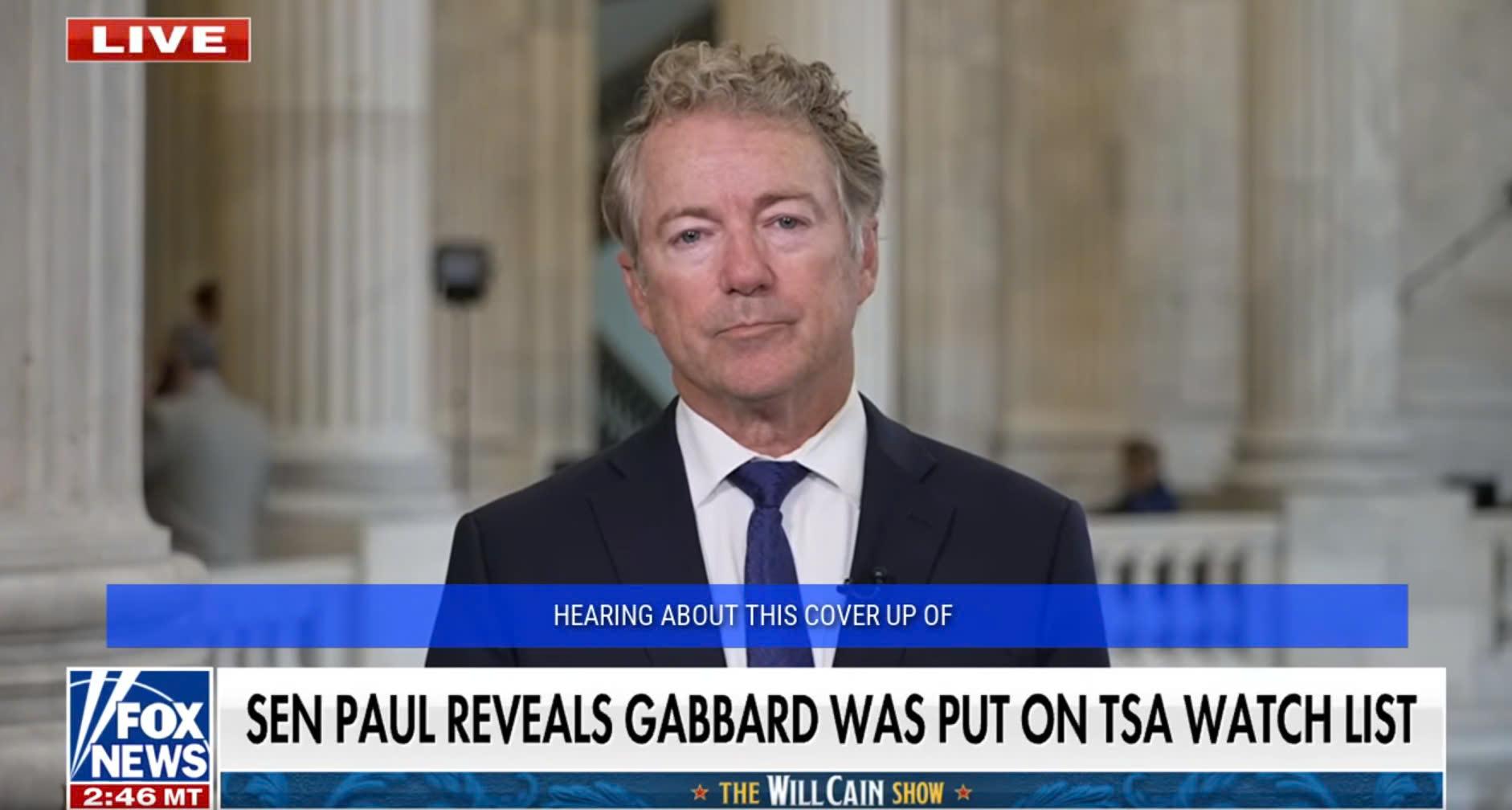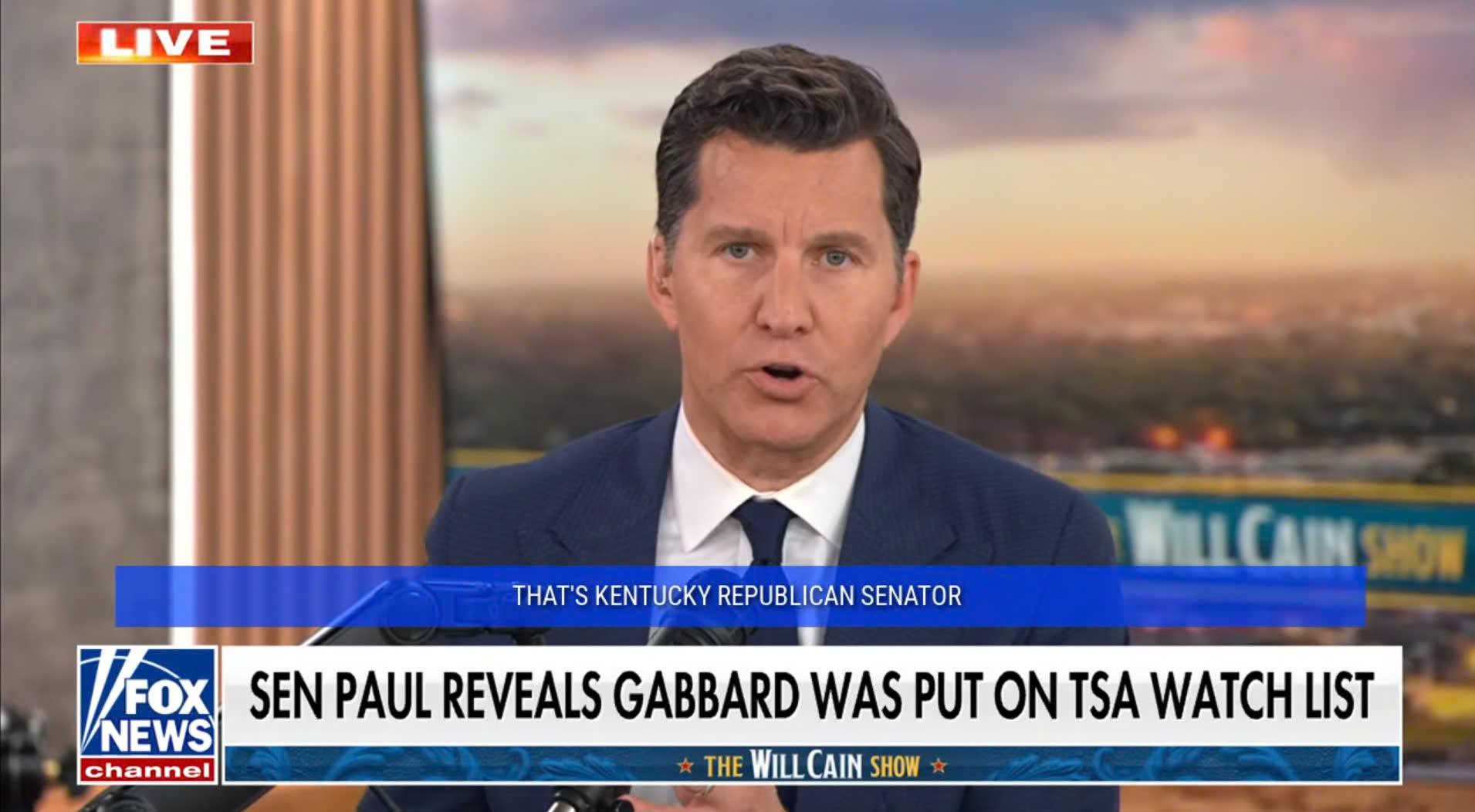Sen. Rand Paul Sounds Alarm Over TSA’s Secret ‘Quiet Skies’ Program After Explosive Senate Hearing
Washington, D.C. – In a fiery Senate hearing that has sent shockwaves through Capitol Hill, Senator Rand Paul (R-KY) has raised serious concerns about the Transportation Security Administration’s covert surveillance initiative known as the “Quiet Skies” program. The program, which reportedly monitors American citizens without their knowledge, has come under renewed scrutiny after revelations that former Representative Tulsi Gabbard was placed on a government watchlist.

During a recent interview with Will Cain, Sen. Paul did not mince words, demanding transparency and accountability from federal agencies. “The idea that a former member of Congress, a veteran like Tulsi Gabbard, could be secretly tracked by her own government is both alarming and unacceptable,” Paul stated. “This raises a bigger question—how many others in Congress or even average Americans have been targeted without cause?”
The “Quiet Skies” program was first exposed in 2018, designed under the guise of national security to observe passengers who may pose threats, despite having no ties to terrorism or criminal activity. However, critics argue that the program infringes on civil liberties and lacks sufficient oversight. The TSA has maintained that its methods are lawful and essential to national safety, but new details revealed during the Senate hearing are challenging that narrative.

According to internal documents and testimony, the surveillance criteria under “Quiet Skies” are vague and subjective. Targets are allegedly tracked for behaviors as benign as changing clothes, using the bathroom frequently, or sweating. Senator Paul expressed grave concern that such loose definitions could allow for abuse and discrimination. “This is not how a free society functions. If they’re watching Tulsi Gabbard, they could be watching any one of us,” he warned.
Sen. Paul is now demanding a full investigation into the scope of the program. He has formally requested a list of current and former lawmakers who may have been subjected to monitoring under “Quiet Skies.” He also called for bipartisan support to impose limits on domestic surveillance and enhance privacy protections for all Americans.

Civil liberties groups, including the ACLU, have echoed Paul’s concerns. In a statement, the organization called for the immediate suspension of the program and a public accounting of its operations. “Secret surveillance without probable cause is an affront to democratic values,” the ACLU noted.
As public awareness grows and political pressure mounts, the future of the “Quiet Skies” program hangs in the balance. With Senator Paul leading the charge, the Senate is expected to take up new hearings and possibly introduce legislation aimed at curbing unchecked domestic surveillance.
For now, the American public is left with a sobering question: if elected officials can be monitored in secret, what protections remain for the rest of us?